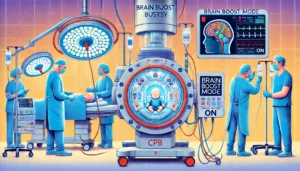
Vasoplegic Syndrome Following Bypass: A Comprehensive Review of Pathophysiology and Proposed Treatments
Vasoplegic syndrome (VS) is a severe circulatory condition occurring post-cardiopulmonary bypass (CPB), affecting up to 44% of high-risk patients with mortality rates reaching 50%. It is characterized by profound hypotension, vasopressor resistance, and vascular collapse. The review explores pathophysiology, risk factors, and treatments, including nitric oxide synthase inhibitors (methylene blue, hydroxocobalamin), vasopressors, and fluid management to mitigate complications and improve survival.










